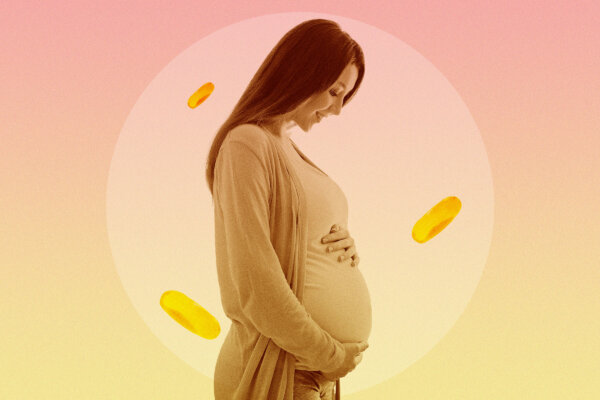![]() Women taking daily vitamin D supplements during pregnancy had children with stronger bones, with benefits lasting into mid-childhood, a new study has found.
Women taking daily vitamin D supplements during pregnancy had children with stronger bones, with benefits lasting into mid-childhood, a new study has found.
The randomized controlled trial established a causal link, suggesting that vitamin D supplementation during pregnancy directly strengthens children’s bones.
Strong Bones, Strong Start
Children born to mothers who took vitamin D supplements during pregnancy had bones that were 18 percent denser, on average, than those whose mothers did not take the supplement. This difference may help reduce the risk of fractures and other bone problems later in life.
Vitamin D—the “sunshine vitamin”—is essential for bone health because it helps the body absorb calcium, which is needed to build strong bones and teeth. The baby’s skeleton forms rapidly during pregnancy, and having enough vitamin D helps support this growth.
Vitamin D “strengthens children’s bones and reduces the risk of conditions like osteoporosis and fractures in later life,” Moon said in the press release.
Vitamin D’s Broader Benefits for Moms and Kids
The new research builds on previous evidence from a 2018 randomized, placebo-controlled trial known as MAVIDOS (Maternal Vitamin D Osteoporosis Study), conducted by researchers from the Universities of Southampton, Oxford, and Sheffield.
The MAVIDOS study followed nearly 1,000 pregnant women, all receiving 1,000 IU of vitamin D daily between 11 and 14 weeks of pregnancy.
According to the results, vitamin D supplementation during pregnancy improved bone mineral density in children at age 4.
The MAVIDOS team also demonstrated that vitamin D supplementation could alter gene activity, aiding specific genes that regulate growth and mineralization. This helps explain why children born to mothers who took vitamin D have better bone health.
Prenatal Vitamins Not a Reliable Source
“It is unlikely your prenatal vitamin provides enough vitamin D,” according to the American Pregnancy Association. The average prenatal vitamin contains only 400 IU of vitamin D, which is insufficient for many women, making additional supplementation necessary.
While vitamin D can also be obtained through sun exposure, fatty fish, mushrooms, and certain fortified foods like milk and eggs, many pregnant women find it difficult to get enough vitamin D from diet and sunlight alone.
“People think that if they are in the sun daily, they have adequate vitamin D levels,” William B. Grant, director of the Sunlight, Nutrition and Health Research Center in San Francisco, told The Epoch Times. “However, vitamin D is made most efficiently only when one’s shadow is shorter than one’s height, which is not the case in winter in the U.S. or early morning, late afternoon.” As a result, supplements are a crucial recommendation for achieving optimal levels during pregnancy.
More Than Bone Health
Vitamin D’s benefits extend far beyond bone health, said Grant, who was not involved in the study. Vitamin D plays a critical role in preventing serious pregnancy complications, including gestational diabetes, preeclampsia, and preterm delivery.
Reducing these pregnancy complications is actually the more compelling reason to supplement with vitamin D during pregnancy, Grant said in an email.











